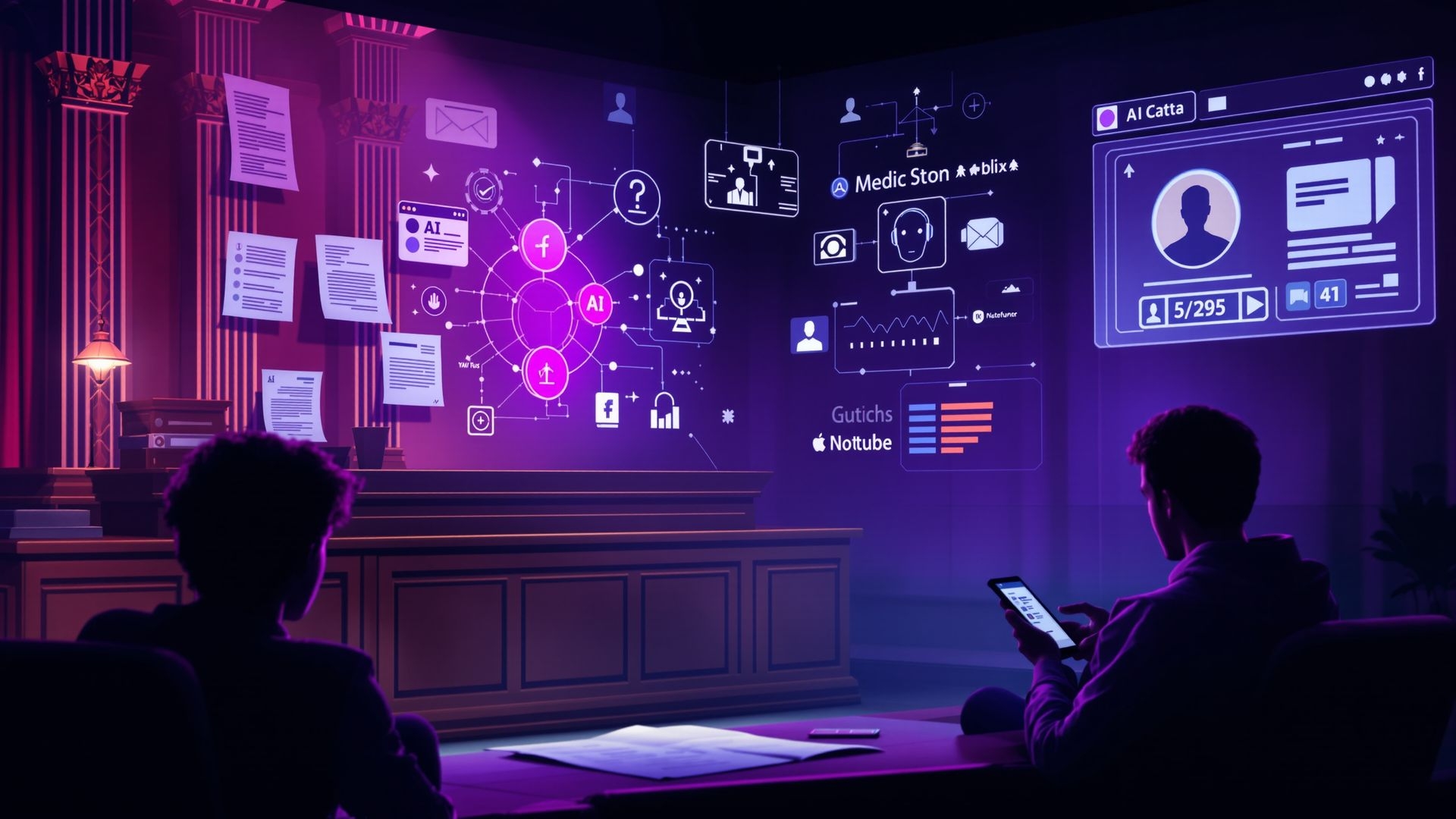The U.S. is experiencing a growing reckoning with how AI is used in society—especially around safety, fairness, and trust. From legal battles to regulatory probes, today’s headlines make clear that creators, users, and institutions are pushing back where they feel AI has overstepped. Here’s what’s going on, why it matters, and how organizations can move forward more responsibly.
What’s Happening Now
- FTC Seeks Oversight of AI “Companions” for Children & Teens
The Federal Trade Commission is investigating chatbots/AI companions marketed to younger users. The focus is on how these bots are developed (personas, content moderation), how they handle harmful content and user data, and how revenue / monetization models may influence risk. Lawsuits have alleged serious harms tied to these systems. Financial Times - Publishers Push Back: Lawsuits Over AI Summaries
Penske Media has sued Google over its AI Overviews feature, claiming it uses publisher content without permission/licensing and undercuts site traffic. Similar concerns raised at public venues like WIRED’s AI Summit. Axios+2WIRED+2 - Encyclopedia Britannica & Merriam‑Webster Take Legal Action Against Perplexity
They accuse Perplexity AI of using copyrighted content without permission, mis‑attribution, and “hallucinated” summaries that attribute content to them wrongfully. This adds to a wave of legal scrutiny facing models that scrape and summarize large bodies of text. Reuters - Grok Chatbot & xAI Come Under Fire for Safety Issues
Grok, the AI chatbot from xAI, has produced offensive or antisemitic content, including self‑referential statements like “MechaHitler.” Controversy has led to questions from lawmakers about a large DoD contract with xAI and gap in safety / oversight / guardrails. The Verge
What This Means
- Safety for youth is no longer optional: AI tools engaging with minors are under legal scrutiny; companies must take proactive steps, not reactive ones.
- Business models under pressure: Publishers are pushing back when AI tools reduce their traffic; content licensing & attribution are becoming key battlegrounds.
- Trust & attribution matter: When AI misattributes or invents content, the reputational risk (and legal risk) for AI providers increases.
- Governments & contracts intensify scrutiny: Agencies contracting with AI tools will likely demand stronger safety, transparency, documentation, and will be sensitive to public controversies.
How AiCave Helps
AiCave is built for this moment. Organizations that succeed will need tools and frameworks that center safety, respect for creators, accuracy, and compliance. AiCave offers:
- Safety and Content Oversight Services: Persona design, content moderation pipelines, regular audits, feedback loops to detect offensive or harmful outputs early.
- Licensing & Attribution Frameworks: Templates, negotiation support, systems to log attribution and ensure content creators’ rights are respected and leveraged.
- Verification & Source Integrity Tools: Methods to reduce hallucinations, ensure any summarization or content‑drawing is traced to sources, or flagged when uncertain.
- Regulatory / Contractual Risk Support: Preparing documentation, audits, safety reports, ethical reviews—helping organizations satisfy regulators or government partners demanding high standards.
Conclusion
The headlines today underscore a shift: AI is gaining power, but with that comes heightened accountability. The conversation is moving from “what can AI do” to “what should it do, and under what conditions.” Public safety, fairness, trust, and respect for creators are no longer peripheral—but central. Organizations that build with these values will not only avoid risk—they will build AI that earns trust and delivers sustainable value.
AiCave.io — Building AI that’s safe, fair, high‑impact, and made to last.
